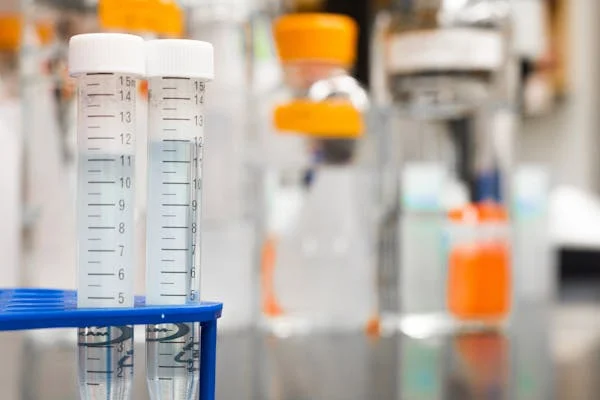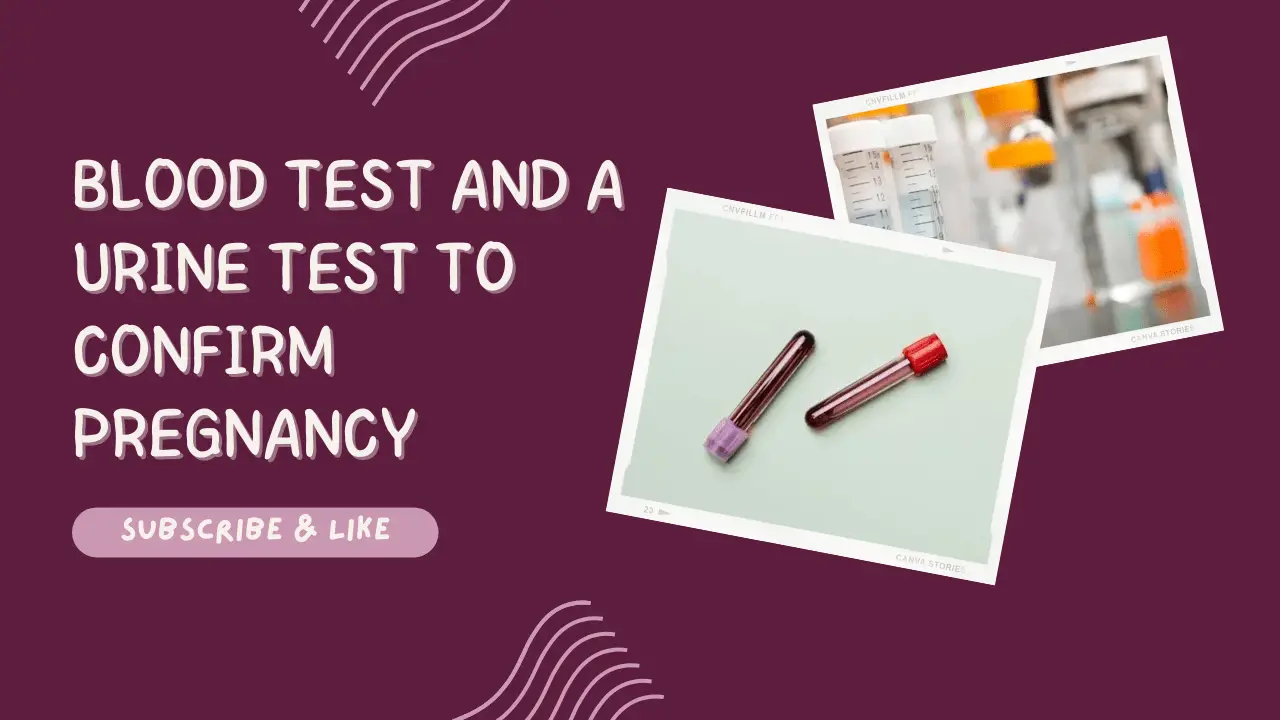Preciseness and timing are ideal for pregnancy confirmation. The urine test and the blood test are the two most widely used pregnancy testing techniques. There are distinct advantages and disadvantages to each approach, which affect when and how you should make a decision.
Although the urine test is readily available and simple to administer at home, its sensitivity may not match that of the blood test. However, the pregnancy-confirming blood test can identify pregnancy sooner and offer more precise hormone level information.
Knowing these distinctions might assist you in selecting the test that best fits your requirements.
Blood Test to Confirm Pregnancy:
A blood test to confirm pregnancy is a highly accurate method for detecting pregnancy through the analysis of blood samples. This test measures the presence and levels of human chorionic gonadotropin (hCG), a hormone produced by the placenta shortly after the embryo attaches to the uterine lining.
How It Works
An accurate pregnancy test requires a medical expert to take a tiny sample of blood from a vein, usually in the arm. The levels of hCG are then determined by laboratory analysis of this sample. Blood tests come in two primary varieties: quantitative and qualitative.

A quantitative blood test determines the precise concentration of hCG in the blood, giving comprehensive information about the course of the pregnancy, whereas a qualitative blood test only determines whether hCG is present.
Accuracy and Timing
One of the key advantages of the blood test to confirm pregnancy is its high sensitivity and accuracy. It can detect pregnancy earlier than a urine test, often as soon as 6-8 days after conception.
This makes it a valuable option for women who need early confirmation or are at risk for complications. Additionally, a blood test can detect very low levels of hCG, which is useful for diagnosing early or ectopic pregnancies and monitoring hCG levels over time.
Pros and Cons
Although a blood test for pregnancy confirmation provides accurate and timely identification, it is usually more costly and less practical than a urine test. It is less suitable for at-home testing because it necessitates a laboratory analysis and a visit to a healthcare provider.
Its comprehensive insights and early detection capabilities make it a preferred option in many medical circumstances, albeit with these downsides.
Urine Test to Confirm Pregnancy:
The urine test to confirm pregnancy is a popular and convenient method used to detect pregnancy by analyzing a urine sample. This test works by detecting the presence of human chorionic gonadotropin (hCG), a hormone that is produced shortly after conception and released into the urine.
How It Works
Simple urine testing to establish pregnancy can be done in a clinical setting or at home. Urine is tested at home using readily accessible over-the-counter kits that react to human chorionic gonadal (hCG) and test strips.

While clinical urine tests, which are frequently performed in a doctor’s office, may employ comparable techniques, they are usually more sensitive and can yield results more quickly.
Accuracy and Timing
Urine tests are simple to use and convenient, although they are typically less sensitive than blood testing. Slightly later than a blood test, a urine test for pregnancy confirmation can find hCG levels typically 10–14 days after conception.
Urine concentration, timing, and following test instructions are some of the variables that can impact the accuracy of home pregnancy tests. Using the first urine in the morning, when hCG levels are highest, is advised for optimal results.
Pros and Cons
The primary advantages of a urine test are its ease of use and accessibility. It can be performed privately at home, and results are usually available within minutes. However, it may not detect pregnancy as early as a blood test to confirm pregnancy and might be less accurate, particularly if used incorrectly or too early.
Despite these limitations, the urine test remains a widely used and trusted method for initial pregnancy screening.
Key Differences Between Blood and Urine Tests:
When choosing between a blood test and a urine test to confirm pregnancy, it’s important to understand their key differences, as each method offers distinct advantages and limitations.
Detection Timing
The timing of discovery is one of the most obvious variations. It is possible to confirm pregnancy before missing a period with a blood test that measures hCG levels as early as 6–8 days after fertilization.
On the other hand, a urine test typically identifies pregnancy between 10 and 14 days following conception. Urine tests are therefore good for confirming pregnancy, although they might not be as helpful for extremely early detection.
Sensitivity and Accuracy
The blood test to confirm pregnancy is more sensitive and accurate compared to urine tests. It can detect lower levels of hCG, which is beneficial for diagnosing early or atypical pregnancies, such as ectopic pregnancies. Urine tests, while generally reliable, are less sensitive and may produce false negatives if used too early or incorrectly.
Cost and Convenience
Tests for urine are more affordable and practical for use at home. They deliver fast findings, frequently in minutes, and are generally accessible over the counter. To guarantee accuracy, they must be used carefully and according to instructions.
However, blood tests are more costly and less available for at-home testing because they require a visit to a healthcare professional and laboratory processing.
Information Provided
A blood test offers detailed information, including quantitative measurements of hCG, which can help monitor pregnancy progress and diagnose potential issues. Urine tests provide a simpler qualitative result, indicating the presence or absence of hCG.
Understanding these differences can help individuals choose the most appropriate method based on their needs and circumstances.
Advantages of Blood Test to Confirm Pregnancy:
The blood test to confirm pregnancy offers several significant advantages over other testing methods, making it a valuable option for detecting pregnancy with precision and reliability.
Early Detection
One of the primary benefits of a blood test to confirm pregnancy is its ability to detect pregnancy earlier than a urine test. It can identify hCG levels as soon as 6-8 days after conception, which is beneficial for women who need early confirmation of pregnancy. This early detection can be crucial for timely medical decisions and interventions.
High Sensitivity and Accuracy
Pregnancy can be confirmed by blood test, which is highly accurate and sensitive. Because of its ability to identify extremely low hCG levels, pregnancy can be confirmed even in situations where levels are only now starting to rise.
This great sensitivity aids in the diagnosis of ectopic pregnancies and the identification of pregnancies that may not be detectable in the early stages using a urine test.
Quantitative Information
Unlike urine tests, which typically provide qualitative results (positive or negative), a blood test offers quantitative results. This means it measures the exact amount of hCG in the blood, providing detailed information about the pregnancy’s progress and helping healthcare providers monitor hCG levels over time.
This can be especially useful for assessing the viability of the pregnancy and detecting potential complications.
Medical Context
A blood test to confirm pregnancy is often recommended by healthcare providers in specific situations, such as when a precise measurement of hCG is needed or when there are concerns about potential complications. It provides a level of detail and reliability that can support better medical decision-making and patient care.
Overall, the blood test to confirm pregnancy offers early detection, high sensitivity, and detailed
Conclusion:
In conclusion, there are a number of benefits to using a blood test to confirm pregnancy, such as early detection, high sensitivity, and comprehensive information regarding hCG levels. Urine tests are easily accessible and convenient, but when accurate measurement and prompt confirmation are needed, a blood test is the best option.
In order to facilitate more informed medical decisions, the blood test to confirm pregnancy offers a dependable answer to individuals who require precise and prompt pregnancy findings. Always seek advice from a healthcare professional to choose the test that will work best for you. Click to learn more.
FAQs:
What is the primary distinction between a pregnancy urine test and a blood test?
As opposed to a urine test, which looks for hCG in urine, a blood test looks for pregnancy by detecting hCG levels in the blood, and it can do so earlier and more accurately.
How soon may a pregnancy be confirmed by a blood test?
While a urine test usually identifies pregnancy 10–14 days after conception, a blood test can establish pregnancy as early as 6–8 days after conception.
Are pregnant blood tests more reliable than pee tests?
Yes, blood tests are typically more sensitive and accurate than other tests. They can identify lower hCG levels and yield quantitative data, which is helpful for monitoring and early diagnosis.
Can a urine test give a false negative result? Yes, a urine test can give false negatives, especially if taken too early, if the urine is diluted, or if the test is not used correctly.
When should I opt for a blood test over a urine test? Choose a blood test if you need early detection, precise measurement of hCG levels, or if you have specific medical concerns requiring detailed information about the pregnancy.
